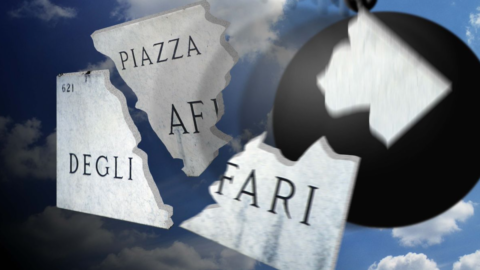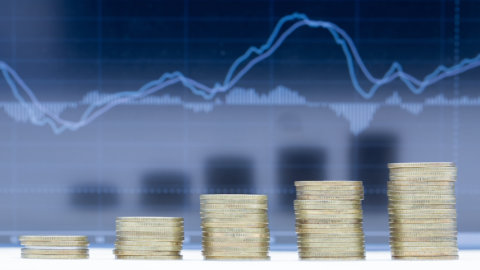The US banking crisis could be the new black swan of the markets, but the bill at the moment is paid above all by the European lists, which today close the worst session for a couple of months now.
Business Square is trailing with a loss of 4,03%.
It's moving into positive territory instead Wall Street in the American morning, after a very volatile start. US banks are down and fear a domino effect after the closure of Silicon Valley Bank and Signature Bank (First Republic Bank shares were suspended while down more than 66% and Zions Bancorporation more than 44%), but sentiment rallied amid reassurances from Joe Biden to account holders of failed banks and in the hope that the Fed decides to soften the tone in the next meetings. Goldman Sachs analysts, for example, no longer expect a rise in the cost of money at the meeting on March 22 and are also looking at the next path with considerable uncertainty.
The hypothesis of a more dovish Fed affects the dollar, which loses almost one percentage point against the major currencies. L'euro finds a change above 1,07.
The picture also alarms the Petroleum, which retreats further after the losses of the last eighth. Brent -0,63%, 82,26 dollars a barrel; Wti -1,21%, 75,75 dollars a barrel.
Recovery stops gas in Amsterdam, which drops again below 50 euros per Mwh.
Europe in deep red with banks; Piazza Affari is the worst
For Europe, the day is one to forget. Red is particularly bright a Business Square, which rewinds the tape up 26.183 basis points, due to the large number of financial stocks on the list. On the other hand, banks were the big players in the rally at the beginning of the year, with double-digit percentage gains for most of their shares.
Among the worst blue chips of the day are Bper -9,51% Unicredit -9,01% Bpm bank -8,09% Banking Mediolanum -7,76% Finecobank -6,32% Understanding -6,1%. In the oil sector, the sell-off of Saipem -7,29%. On the other hand, investors are attracted by securities considered defensive such as utilities, Italgas + 1,05% Snam + 0,57% Terna +0,61%. Keeps the plus sign by a whisker Leonardo, +0,09%, still in the wake of the accounts.
Sales in the credit sector also weigh heavily on Madrid -3,55% Frankfurt -3,08% Paris -2,9% London -2,6% Amsterdam -2,12%. Switzerland is among the worst stocks Credit Suisse (-9,58%), which has touched new lows, the German Commerzbank (-9,89%), the French Société Générale (-3,41%), the Spanish Sabadell (-11,37%), the British Hsbc (-4,05%).
In short, Europe did not benefit today from the prospect of a more cautious US central bank, pending Thursday's ECB meeting, which in turn could decide to limit itself to a 25 basis point increase in rates. Many continental authorities also tried during the day to send reassuring messages starting with the EU commissioner for the economy, Paolo Gentiloni, according to which in Europe "there is the possibility of indirect contagion, but at the moment we do not consider it a specific risk". The EU Commission has clarified that SVB has a limited presence in the European Union, although it is monitoring the situation. Lastly, Moody's considers the reduction in the value of stocks on the Stock Exchange today moderate and moreover temporary.
Government bonds are rallying. The spread goes up
An equal and opposite effect with respect to equities is recorded today on government bonds, which show declining yields both in Europe and in the USA.
As regards the T-bonds, the two-year stock is experiencing the largest decline since the session following Black Monday in 1987 and its yield is currently just over 4%, down about 55 basis points from Friday's close. The stock's rate had risen more than 5% last week, the highest since 2006.
In Europe, purchases were mainly directed towards French and German government bonds.
Even Italian paper closes a buying session and the 4,07-year yield falls to 4,19% (from 2,25% on Friday), but the Bund of the same duration does better with a rate of 2,47% (from XNUMX. XNUMX%), for one spread which rises to 181 basis points (+4,94%).





